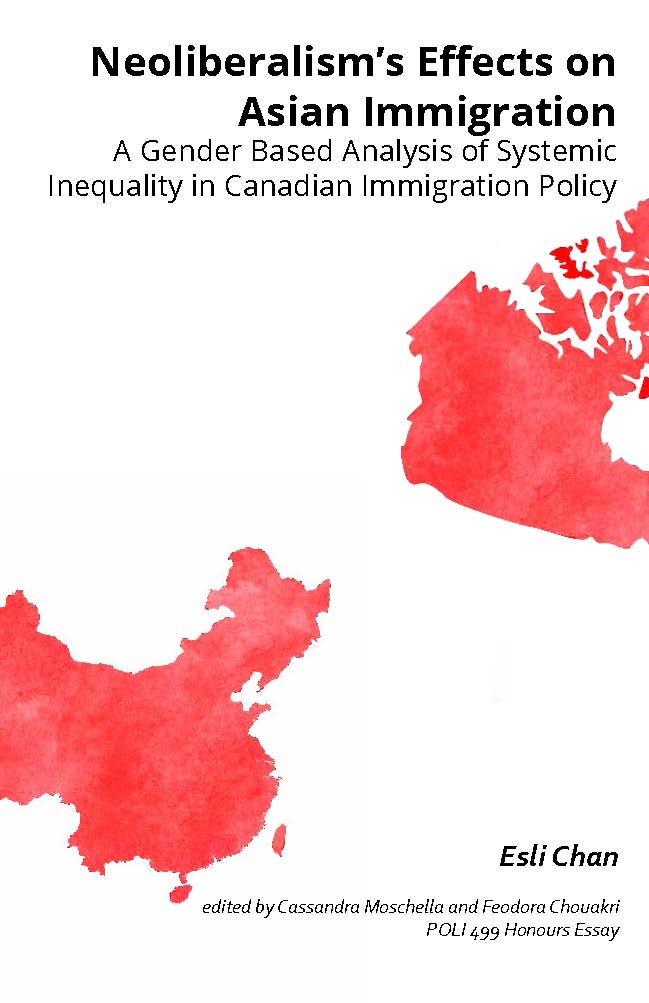Neoliberalism’s Effects on Asian Immigration: A Gender Based Analysis of Systemic Inequality in Canadian Immigration Policy
DOI:
https://doi.org/10.26443/firr.v9i2.14Abstract
Canada’s immigration policy was historically checkered with discriminative regulations, namely posing restrictions on potential Asian migrants and their potential path towards citizenship through The 1885 Chinese Immigration Act. In 1967, The Immigration Refugee Protection Regulation (“IRPR”) was introduced, claiming to eradicate all explicitly discriminative provisions and provide a new pragmatic point-based system to objectively assess all potential migrants. Despite this shift towards multiculturalism and equality, Canada’s immigration regime still continues to reinforce racial and gendered inequalities. This paper argues that the rise of neoliberalism presented immigration as an economic transaction, reproducing and reinforcing historical forms of inequality as subterfuge for inclusivity. A focus on market structures and individualistic points-based assessment exacerbated global oppressions of women in labour, privatizing migrant women into domesticity. IRPR further reinforced heteronormative and traditional family unit, perpetuating the notion that women are predominantly dependents and subordinate to the man. As a result, the influence of neoliberalism on immigrant policy resultantly left immigrant women invisible in the Canadian public sphere.Downloads
Download data is not yet available.

Downloads
Published
2019-05-14
Issue
Section
Articles
License
Copyright (c) 2019 Esli Chan

This work is licensed under a Creative Commons Attribution-NonCommercial-NoDerivatives 4.0 International License.

